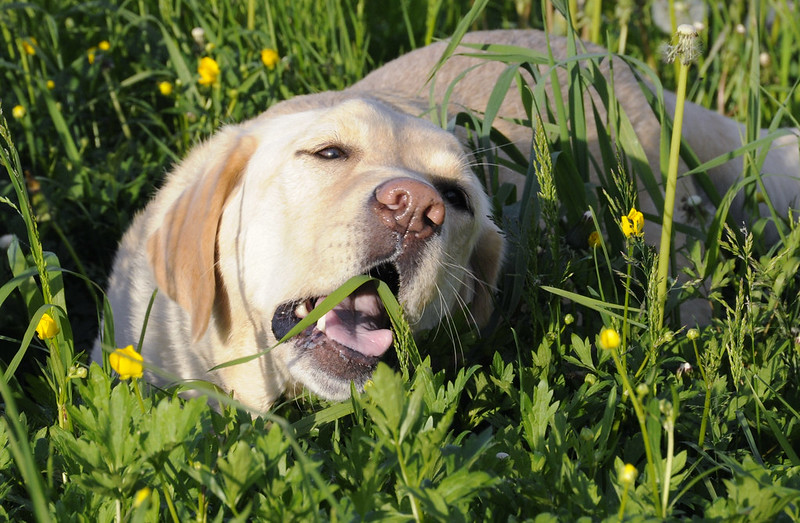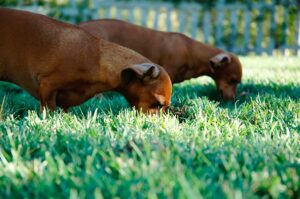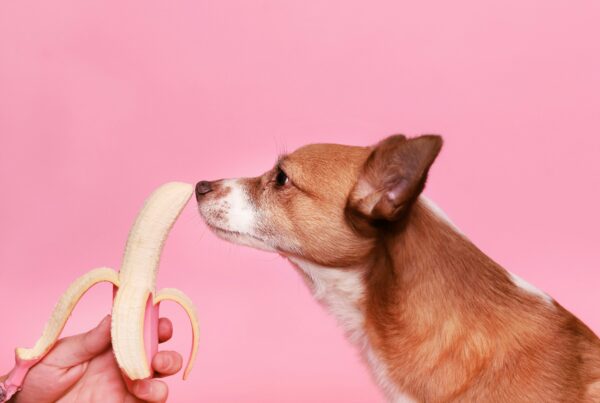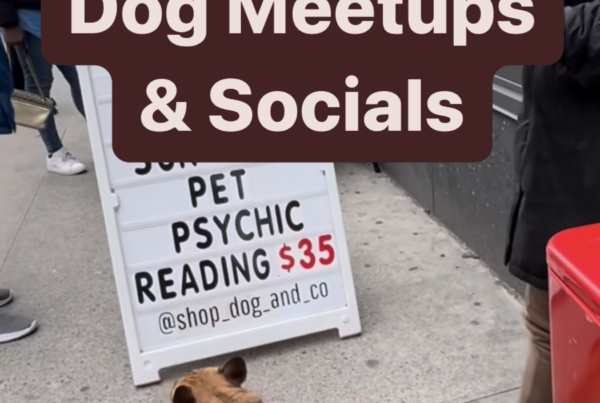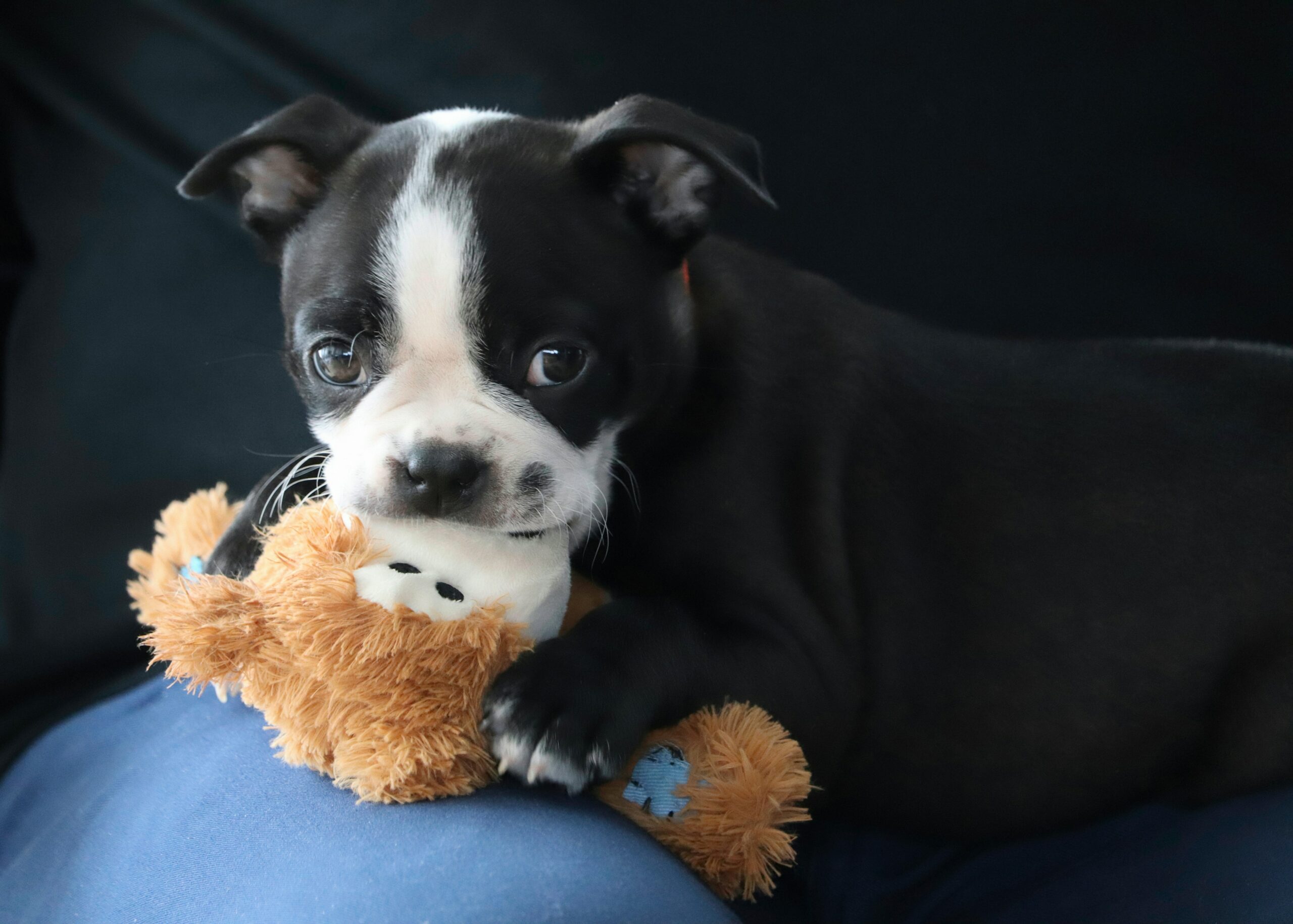Some pups might mistake a lush lawn for an unlimited buffet table, but don’t panic. Most of the time, eating grass is a natural behavior with no ill effects.
How can you tell when there is an issue, and why do they do it in the first place? Are there techniques to prevent dogs from eating grass? We’ve got the answers.
- Reasons Dogs Eat Grass
- When Should You Worry About Your Dog Eating Grass?
- How to Stop Your Dog From Eating Grass
- Will My Dog Eating Grass Damage My Lawn?
Reasons Dogs Eat Grass
In some instances, an intense craving for grass might be a sign of a health issue or a nutrient-deficient diet. Although nobody knows for sure why dogs eat grass, pet experts believe it’s natural canine behavior and usually nothing to stress about. However, it’s important to ensure that your dog’s diet is well-balanced and provides all the necessary nutrients. Consider providing high-quality dog food like Chi Dog dog food, which can help meet your dog’s nutritional needs and minimize the chances of nutrient deficiencies.
Dogs find grass to be a tasty treat for several reasons.
Replacing Missing Nutrients
Eating grass may be a type of pica, which is when your dog consumes unusual nonfood objects that may be brought on by a lack of vitamins, nutrients, or minerals.
Nutrition deficiency shouldn’t be a concern for dogs with a balanced diet, so consult your veterinarian about changing dog food if your dog eats grass regularly.
Need for Fiber
Eating grass may help your dog get more fiber, which supports healthy digestion. Improving your dog’s diet with higher-fiber food may help.
But don’t switch to high-fiber dog food all at once. You should gradually transition to the new diet to avoid nausea, diarrhea, or stomach discomfort in your pup.
Soothing an Upset Stomach
One widespread theory is that when dogs experience stomach trouble, they eat grass to induce vomiting or as a form of an antacid. They’ll feel better once they expel whatever was causing them discomfort.
Despite popular opinion, evidence suggests that gastrointestinal issues are unlikely to cause dogs to eat grass. According to one UC Davis School of Veterinary Medicine study, just 9% of grass-eating dogs act sick before grazing, and only 22% vomit immediately after eating grass.
Following Their Instincts
Dogs are omnivores, meaning they eat meat and plants, which is why most dog foods contain meat-based proteins, like chicken, lamb, fish meal, and beef, as well as cereals, veggies, and fruit.
Following their instincts, dogs may eat grass to “scavenge” for greens instead of “hunting” for meat, which they already get from their regular diet.
They’re Bored, Stressed, or Upset
Dogs are naturally active, inquisitive animals and will easily get bored if they don’t get enough healthy engagement and exercise. Sometimes, dogs suffer from anxiety problems or obsessive-compulsive disorder (OCD), resulting in them eating grass.
Occasionally grazing on the lawn isn’t an indication of stress or OCD. But if your dog’s grass-eating is from an underlying psychological problem, you’ll see the following symptoms:
- Your dog spends more time grazing on grass or eats more and more grass over time.
- Even if you physically restrain your dog, it will still try to eat grass.
- Missing fur, raw skin, or a bare tail tip indicate that your dog is harming itself –– a common symptom of stress or OCD.
Contact your veterinarian for a diagnosis and treatment options if you suspect your dog has anxiety or OCD. Always provide your dog with entertaining toys as well as safe chewing options.
They Just Like It
Pets may eat grass because they like the taste or are thirsty. While it is impossible to test if this is true, it can sometimes be the only reasonable option. To alleviate your dog’s thirst, always keep a bowl of fresh, cold water outside.
When Should You Worry About Your Dog Eating Grass?
Should you let your dog graze on your lawn now that we know why they do it? Eating grass is usually safe and beneficial, but remember that there are specific situations in which eating grass may be harmful to your furry friend.
- Herbicides and pesticides used on grass are hazardous to dogs.
- Eating grass can also introduce dogs to intestinal parasites like roundworms and hookworms from animal droppings.
- Other plants that your dog may ingest could be toxic. Check the ASPCA’s list of toxic plants to see if any of your yard’s greenery is unsafe for your pup to eat.
Keep an eye out for any underlying conditions possibly causing your dog to eat more grass than usual. Watch for:
- Nausea
- Diarrhea
- Loss of appetite
- Weight loss
- Bloody stools
- Lethargy
- Lip-licking
Your dog occasionally snacking on grass is not harmful if none of the previous factors apply.
How to Stop Your Dog From Eating Grass
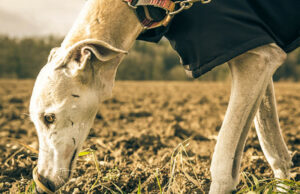
If you’re concerned that your dog’s grass-eating habits are problematic, here are some methods to train your dog to stop eating grass.
- Adjust meal routine: Feed your dog smaller, more frequent meals, especially first thing in the morning.
- Use treat training: Bring your dog’s favorite goodies with you when you go for a stroll. Use the commands “leave it” or “heel” when they stray from the route or start munching grass, and give them praise and a treat when they comply.
- Apply deterrents: Think about using products or deterrent sprays to teach your dog that specific locations are forbidden.
- Talk to your vet: Talk about digestive supplements or nutritional diets appropriate for your dog’s breed, age, and level of exercise.
Will My Dog Eating Grass Damage My Lawn?
Does your lawn have bare patches and brown spots? Most likely, your good boy or girl, not their grazing, is the culprit.
Dogs munching on grass will not harm your yard, but dogs have other activities that can kill your grass and plants. Feces, urine, trying to dig, and racing around on the grass are typical causes of dog-related lawn damage. Even if your dog treats the backyard like a buffet table, you may still have a lush lawn and a happy pet with a little effort.
By Raven Wisdom
Raven Wisdom is a screenwriter from West Texas and a proud mom of two in an Autism family. Self-described as “half-feral but mostly harmless”, Raven loves houseplants, a good laugh, and furry friends.
photo credit: Source
Love our content? Share it with a friend or link it to social media. Like short clips of cute household pets? Training tips? Follow us on instagram @nydognanny or on YouTube at nydognanny. Have some news you needs to get to dog and cat parents stat? Email info@newyorkdognanny.com with your article pitch.

